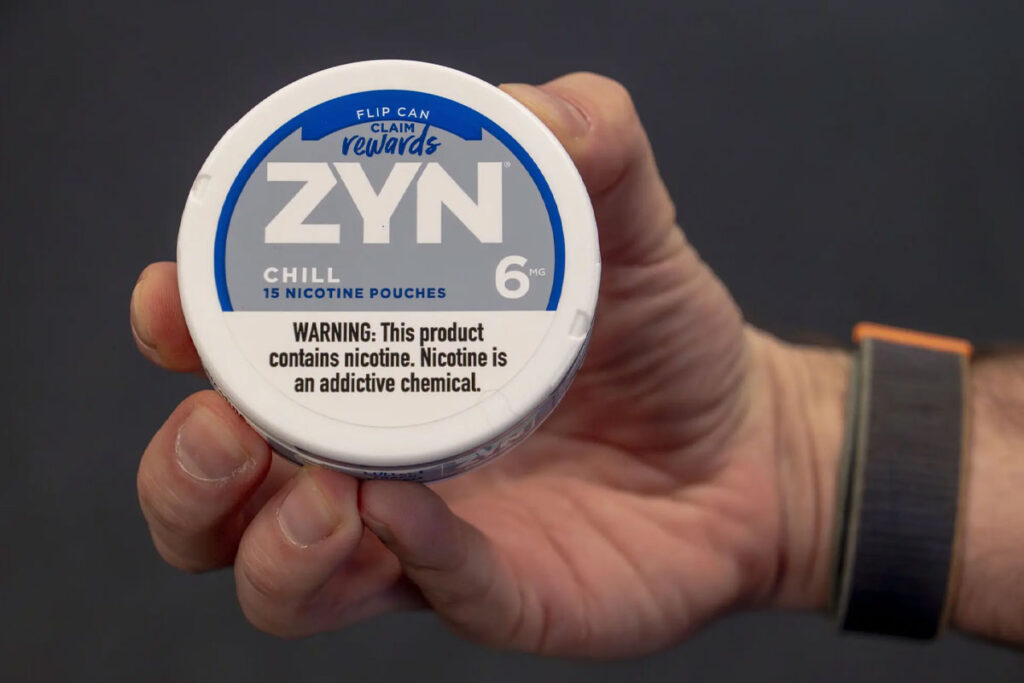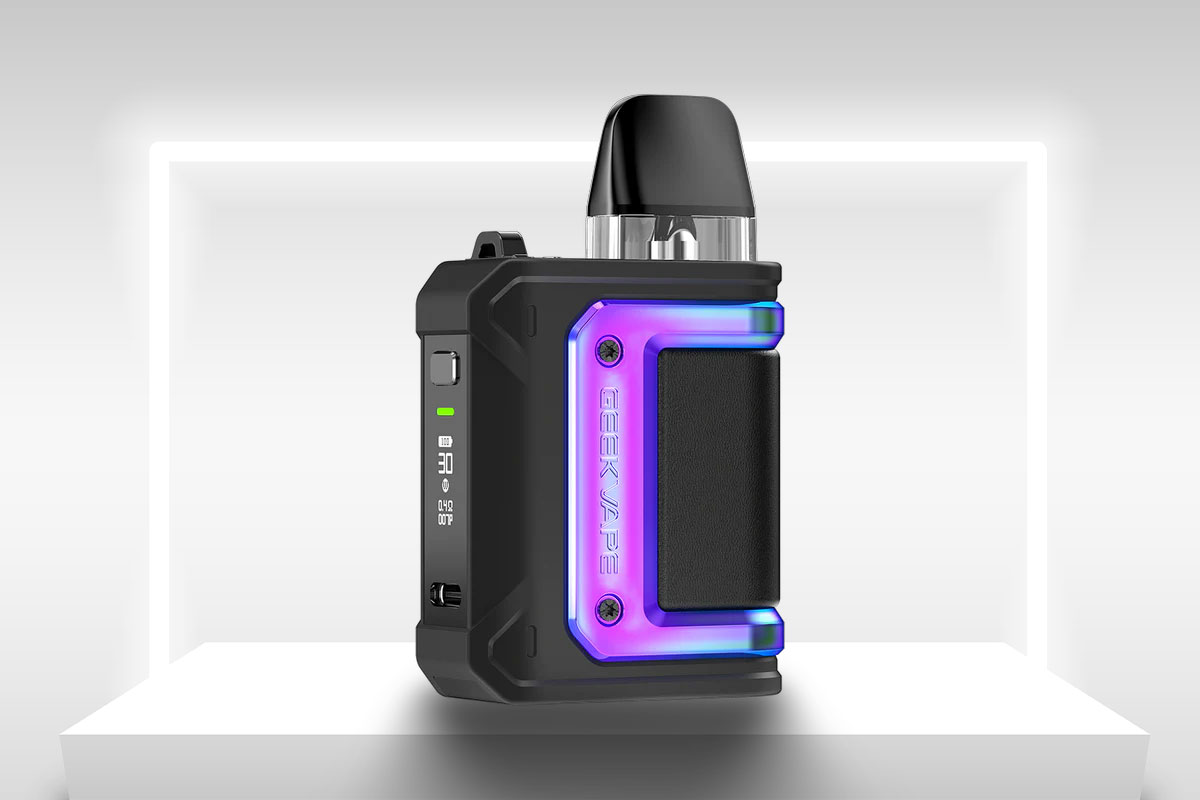What Are Nicotine Pouches? A Comprehensive Guide
Nicotine pouches are a relatively new addition to the nicotine product market, offering an alternative for people seeking to consume nicotine without the associated risks of tobacco or vaping. With the rising popularity in the U.S. and other parts of the world, nicotine pouches present a smokeless, spit-free option that promises to deliver nicotine discreetly and conveniently. But what exactly are nicotine pouches, and how do they compare to traditional nicotine products? In this article, we will explore these questions in depth, reviewing the types, health implications, and the role of nicotine pouches in smoking cessation.
What Are Nicotine Pouches?

Nicotine pouches are small, oral products placed between the lip and gum, releasing nicotine through the mucous membrane in the mouth. The pouches are tobacco-free but contain nicotine, flavorings, sweeteners, and plant-based fibers. Popular brands like Zyn, On!, and Velo offer nicotine pouches in various nicotine strengths, typically ranging from 2 mg to 9 mg per pouch.
Unlike traditional tobacco products like cigarettes or chewing tobacco, nicotine pouches do not require burning or spitting, making them a cleaner and more convenient option for users. They often come in flavors such as mint, berry, and citrus, aiming to appeal to a broader audience, including those trying to quit smoking or reduce their tobacco intake.
A Brief History of Nicotine Pouches

The emergence of nicotine pouches as a tobacco alternative can be traced to the growing demand for less harmful nicotine consumption methods. They gained significant market traction over the last decade, with brands like Zyn dominating convenience stores. According to Nielsen data, Zyn’s dollar sales in 2020 surged by over 400%, reflecting an increasing preference for smokeless nicotine alternatives.
The transition from traditional tobacco to nicotine pouches aligns with a broader trend toward harm reduction strategies. Nicotine pouches allow users to avoid the carcinogens associated with smoking while still satisfying their nicotine cravings. Despite their recent rise, long-term studies on their safety are still pending, making them a subject of ongoing research.
Nicotine Pouches vs. Traditional Tobacco Products
One of the major selling points of nicotine pouches is their tobacco-free formulation. Unlike cigarettes or chewing tobacco, nicotine pouches do not involve inhaling smoke or exposing the lungs to harmful chemicals like tar or carbon monoxide. Additionally, nicotine pouches eliminate second-hand smoke risks, which makes them appealing for public use.
However, the absence of tobacco does not mean they are entirely risk-free. Nicotine itself is a highly addictive substance, and its long-term use can have significant health implications. While they may reduce certain harms associated with smoking, users are still exposed to nicotine’s addictive properties.
How Do Nicotine Pouches Work?

Nicotine pouches are simple to use. Users place the pouch between their gum and upper lip, where nicotine is gradually absorbed into the bloodstream via the oral mucosa. The duration of nicotine release typically lasts anywhere from 20 minutes to an hour, depending on the nicotine concentration and personal tolerance.
Unlike smoking or vaping, nicotine pouches do not require any heating or combustion. This method of nicotine delivery has attracted individuals who prefer a more discreet way to consume nicotine without the social stigma often associated with smoking or vaping in public.
Types of Nicotine Pouches

Nicotine pouches come in different strengths to accommodate various preferences and nicotine tolerances. Common nicotine strengths include:
- Low strength (2-3 mg): Suitable for light users or those transitioning from nicotine replacement therapies like gum or lozenges.
- Medium strength (4-6 mg): Ideal for regular users or those who want a moderate nicotine kick.
- High strength (7-9 mg): Typically used by heavy smokers or those accustomed to higher nicotine doses.
Flavored nicotine pouches, such as mint, citrus, and fruit flavors, are especially popular. These flavored options have sparked debate, with some advocating for their ban due to concerns over their appeal to younger audiences.
Are Nicotine Pouches Safer Than Other Tobacco Products?
The safety of nicotine pouches relative to other tobacco products is a complex issue. While nicotine pouches eliminate the risks of lung damage associated with smoking and vaping, they are not without health concerns. Nicotine is still a highly addictive substance with potential long-term effects on cardiovascular health, brain function, and even fetal development during pregnancy.
Additionally, the long-term health effects of nicotine pouches remain largely unknown, as they have only been on the market for a few years. The U.S. Food and Drug Administration (FDA) has not yet approved nicotine pouches as a smoking cessation tool, and current research is still determining whether reduced exposure to tobacco-specific chemicals translates into significant health benefits.
Health Risks Associated with Nicotine Pouches
Nicotine pouches are not free from side effects. Common issues users report include:
- Gum irritation: Prolonged use of nicotine pouches can cause irritation in the gums, leading to discomfort or soreness.
- Nausea: Some users, particularly those new to nicotine or with low tolerance, may experience nausea.
- Addiction: As with any nicotine-containing product, there’s a significant risk of developing nicotine dependence, which can increase the likelihood of relapse into tobacco use.
For adolescents and pregnant women, nicotine poses additional risks. Studies show that nicotine use during adolescence can impair brain development, while nicotine exposure during pregnancy may harm fetal health.
Nicotine Pouch Usage Trends and Statistics
Nicotine pouches have seen a sharp rise in popularity, particularly in the United States. According to a study by the CDC, around 2.9% of U.S. adults reported having used nicotine pouches in 2022, with 0.4% being current users. The study found that nicotine pouch use is most common among current and former smokers, with younger age groups and males being the largest demographic.
Sales data also indicate the rapid growth of this market. From 2019 to 2022, sales of nicotine pouches surged by over 600%, with pouches containing lower nicotine concentrations (under 6 mg) being the most popular.
Nicotine Pouches and Smoking Cessation: Are They Effective?
While nicotine pouches are often marketed as a safer alternative to smoking, they have not been approved as a smoking cessation aid. The FDA has approved several nicotine replacement therapies (NRTs), such as nicotine patches, gum, and lozenges, but nicotine pouches are not among them.
Experts emphasize that the most effective approach to quitting smoking involves a combination of behavioral therapy and FDA-approved cessation tools. There is little data to suggest that nicotine pouches can help users quit smoking altogether. In fact, the addictive nature of nicotine in pouches may make it harder for some users to break free from nicotine dependence.
FAQs
What are the side effects of nicotine pouches?
Common side effects include gum irritation, sore mouth, hiccups, and nausea. Nicotine addiction remains a major risk for long-term users.
Are nicotine pouches safer than smoking or vaping?
While they avoid some of the harms associated with tobacco, the long-term effects of nicotine pouches are still unclear.
Can nicotine pouches help you quit smoking?
No. Nicotine pouches are not approved by the FDA as a smoking cessation aid.
What brands offer nicotine pouches?
Popular brands include Zyn, Velo, and On!
Do nicotine pouches contain tobacco?
No, they are tobacco-free but still contain nicotine.
Conclusion
Nicotine pouches offer a smokeless, tobacco-free option for nicotine consumption, appealing to those looking to reduce their exposure to harmful chemicals from smoking or vaping. However, nicotine is still a potent and addictive substance, and the long-term health effects of nicotine pouches remain uncertain. For those looking to quit smoking, it’s recommended to explore FDA-approved nicotine replacement therapies and combine them with behavioral counseling for the best chances of success.








